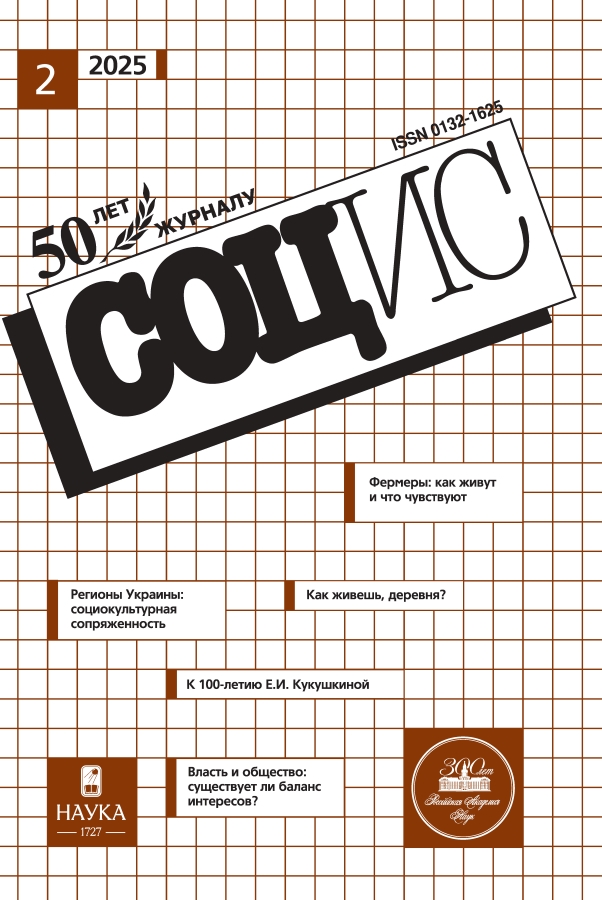On the problem of chronic social stress in the expeditionary shift work in the Arctic
- Authors: Akimov A.M.1,2
-
Affiliations:
- Tyumen Cardiology Research Center – Branch of the Tomsk NIMC of the Russian Academy of Sciences
- Industrial University of Tyumen
- Issue: No 2 (2025)
- Pages: 124-130
- Section: FACTS. COMMENTS. NOTES
- URL: https://ruspoj.com/0132-1625/article/view/682091
- DOI: https://doi.org/10.31857/S0132162525020127
- ID: 682091
Cite item
Abstract
Managing the health of “shift workers”, who represent the main economic potential for the development of the Arctic, perhaps, first of all, by influencing factors of chronic social stress, while the markers of this process are the value characteristics of health. The results of a cross-sectional study on a representative sample of workers in the Arctic latitudes of the Tyumen region are presented, depending on their length of service on an expeditionary rotational basis. The WHO MONICA-MOPSY questionnaire was used to determine stress in the family and at work, attitude towards one’s health and self-esteem. In groups with a long experience of working as an expeditionary watch in the Arctic, in the presence of stress at work, a tendency towards decreased self-esteem and low responsibility for one’s health was established, and in the presence of stress in the family, a decrease in concern for one’s health. When working as an expeditionary shift worker for less than ten years and in the presence of stress at work, there is a lower desire to prevent diseases and take care of one’s health. The presented results can serve as a scientific basis for creating a social model for managing the health of the studied contingent of “shift workers” and assessing its effectiveness.
Full Text
About the authors
Alexander M. Akimov
Tyumen Cardiology Research Center – Branch of the Tomsk NIMC of the Russian Academy of Sciences; Industrial University of Tyumen
Author for correspondence.
Email: akimovam@infarkta.net
Cand. Sci. (Sociol,), Senior Research Fellow of the Laboratory of Epidemiology and Prevention of Cardiovascular Diseases, Associate Professor at the Department of Transport and Technological Systems
Russian Federation, Tyumen; TyumenReferences
- Akimov A. M. (2023) On Some Social Characteristics of Chronic Stress of Shift Workers in the Arctic. Sociologicheskie issledovaniya [Sociological Studies]. No. 5: 119–124. (In Russ.)
- Akimova E. V., Gakova E. I., Akimov A. M., Kuznetsov V. A., Krinochkin D. V. (2018) Gender Aspects of Attitude to Health and Medical Care in Open Population of Middle Urbanized Siberian City. Journal of the American College of Cardiology. Vol. 72. No. 16: 221.
- Chinnaiyan K. (2019) Role of Stress Management for Cardiovascular Disease Prevention. Curr Opin Cardiol. No. 34(5): 531–535. doi: 10.1097/HCO.0000000000000649.
- Gakova E. I., Gakova A. A., Bessonova M. I., Kayumova M. M., Akimov A. M., Petelina T. I. (2022) Primary Risk Factors for Cardiovascular Diseases in Men Working on a Rotational Basis in the Far North. Profilakticheskaya meditsina [Preventive Medicine]. No. 25(11): 65–71. doi: 10.17116/profmed20222511161. (In Russ.)
- Gafarov V. V., Gromova E. A., Maksimov V. N., Gagulin I. V., Gafarova A. V. (2020) Epidemiology of cardiovascular diseases. Novosibirsk: Nauka. (In Russ.)
- Kaznacheev V. P. (1986) Clinical aspects of polar medicine. Moscow: Medicina. (In Russ.)
- Saxinger G., Efner E., Shakirova E., Ivanova M., Yakovlev M., Gareev E. (2014) I’m ready!”: The Next Generation of Mobile Professionals In the Russian Oil and Gas Industry. Sibirskie istoricheskie issledovaniya [Siberian historical research]. No. 3: 73–103. (In Russ.)
- Selye H. (1960) The Story of the Adaptation Syndrome. Moscow: Medgiz. (In Russ.)
- Silin A. N. (2011) Interregional Use of Human Resources in the Far North. Sociologicheskie issledovaniya [Sociological Studies]. No. 9: 41–47. (In Russ.)
- Silin A. N. (2021) Shift Work in the Arctic: Socio-spatial Discourse. Tambov: Yukom. (In Russ.)
- Silin A.N., Markin V.V. (eds) (2019) Health Saving of Participants in the Development of the Arctic Oil and Gas Region. Tyumen: TIU. (In Russ.)
- Smaznov V. Yu., Kayumova M. M., Akimova E. V., Bessonova M. I., Kayumov R. Kh., Zagorodnykh E.Yu., Gafarov V. V., Kuznetsov V. A. (2011) Awareness, Attitude to one’s Health and Prevention in the Male Siberian Population. Profilakticheskaya meditsina [Preventive Medicine]. No. 4(14): 24–27. (In Russ.)
Supplementary files










